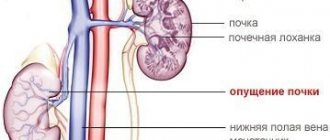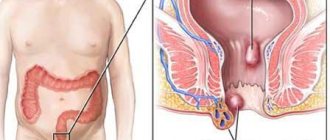Why do kidney and ureter diseases occur?
The main factors that provoke the development of kidney and ureter diseases include:
- hypothermia of the body (especially in the lumbar region);
- untreated sexually transmitted infections,
- endocrine disorders;
- decompensated diseases of the cardiovascular system;
- ignoring intimate hygiene;
- low immunity;
- chronic fatigue, frequent stress;
- structural anomalies of the urinary system organs;
- mechanical injuries to the kidneys and bladder;
- previous chemotherapy;
- genetic predisposition;
- poor nutrition.
Common symptoms of kidney and urinary tract diseases
When faced with symptoms that indicate disturbances in the functioning of the urinary system, you need to consult a urologist as soon as possible. There are some common manifestations of pathologies:
- urinary disorders (frequency and/or quality),
- changes in urine color
- blood in urine
- pain and burning when urinating,
- pain in the lower back and stomach,
- increased body temperature and blood pressure,
- general weakness, drowsiness, headache,
- the appearance of swelling of the limbs and face due to impaired removal of fluid from the body,
- loss of appetite, bad taste in the mouth and bad breath.
Kidney disease also affects a person’s appearance. A specific characteristic is the appearance of dark circles and puffiness under the eyes, pallor, yellowing and dry skin.
Diagnostics
Diagnosis of diseases of the urinary system begins with taking an anamnesis. After this, a doctor’s examination is carried out, which includes palpation of the kidneys (palpation) - normally they should not be palpated; percussion of the kidneys (tapping the corresponding part of the body), palpation of the bladder area, examination of the external genitalia.
Among the instrumental examination methods:
- Blood analysis. Aimed at detecting increases in blood urea, creatinine and uric acid.
- Urinalysis (general and Nechiporenko). Determines the presence of impurities, markers of inflammation, and inadequate function of the kidney filtration barrier.
- Ultrasound, X-ray, CT, MRI. Changes in the size and shape of the kidneys, the presence of neoplasms (tumors and cysts) are determined, and the presence of stones due to urolithiasis is detected.
Types of jades
Depending on the location of the inflammatory process, there are:
- Glomerulonephritis is inflammation in the area of the kidney glomeruli. The disease is autoimmune in nature.
- Pyelonephritis, or kidney nephritis, is a lesion of the kidney tissue and pelvis.
- Hereditary nephritis is a disease whose first symptoms appear in childhood.
- Interstitial nephritis is inflammation in the area of the renal tubules, as a result of which the conductive function of the kidneys is impaired.
- Radiation nephritis is an inflammatory process due to irradiation of the body or undergoing a course of radiation treatment.
A comprehensive diagnosis of the patient’s body allows one to accurately identify the site of inflammation and take measures to slow its spread and gradual extinction.
How are kidney and ureter diseases treated?
Treatment depends on the disease and its stage, as well as the presence of concomitant pathology. It includes conservative therapy (drugs affecting bladder activity, prostate volume, litholytic and lithokinetic drugs, diuretics, antispasmodics, immunomodulators, antipyretics and anti-inflammatory drugs) and surgical methods in cases where conservative therapy is not indicated or is not effective .
In our clinic, we perform endoscopic and laparoscopic operations with minimal intervention in the body, which allow us to completely remove pathological neoplasms of organs. You can find detailed descriptions of the operations we perform in the “Treatment Methods” section.
Treatment
A patient with signs of nephritis is given strict bed rest, which helps reduce the rate of spread of infection through the circulatory system and internal organs. You can cope with the disease by:
- Taking medications to eliminate the causes of inflammation. A course of antibiotics, antiviral drugs, hemosorption procedures and plasmaphoresis to destroy the pathogen in the patient’s blood gives a good effect.
- Blocking the development of the inflammatory process and its spread throughout the body. The effect is achieved by taking hormonal drugs, antihistamines, and medications to activate blood circulation in the kidney tissues.
- Symptomatic treatment to alleviate the patient's condition. The course includes water-electrolyte drips, monitoring of daily urination, intestinal or hemodialysis, which allows you to remove metabolic products from the body.
A prerequisite for successful treatment is a diet for nephritis, the main requirements of which are reducing the amount of salt in the diet and limiting the volume of fluid to 700-800 ml, depending on the patient’s body weight. Treatment is carried out under the strict supervision of a doctor, and its content is adjusted as monitoring indicators change and signs of recovery appear.
Prevention of kidney and urinary tract diseases
A healthy lifestyle, adequate drinking regimen, and control of chronic diseases reduces the risk of developing diseases of the genitourinary organs. Periodic visits to the doctor and basic examinations increase the chances of protecting yourself from health problems, including pathologies of the kidneys and ureters.
Basic preventive measures:
- Avoid hypothermia, especially in the lumbar region.
- Eat properly and balanced.
- Quit smoking and minimize alcohol intake.
- Follow the rules of intimate hygiene.
- Treat inflammatory and infectious processes in a timely manner.
- Systematic examinations by specialized specialists.
The main diseases of the kidneys and ureters that we treat and their manifestations
Hydronephrosis
Hydronephrosis is a pathology in which blockage or disruption of the proper functioning of the urinary tract occurs. In the presence of one or another persistent mechanical obstacle to the outflow of urine from the kidney, irreversible changes in the kidney parenchyma occur.
Symptoms:
- nagging pain in the lumbar region;
- increased serum creatinine;
- decrease in the volume of urine excreted;
- blood in urine;
- swelling;
- increased blood pressure.
Stones in the ureters
Stones (calculi) in the ureter are a dense formation of uric acid, salts and proteins. If the stone is small, it may come out spontaneously. But with larger stones, a very painful condition occurs - the movement of the stone along the ureteral mucosa causes severe pain. Renal colic may occur, an acute condition accompanied by unbearable pain. Unfortunately, most often stones in the ureter are detected already with the development of renal colic. An acute attack of renal colic may pass, but it will certainly recur, so you should urgently consult a doctor.
Stones in the kidneys
Kidney stones are salt deposits accumulated in the kidneys. Their symptoms:
- lower back pain;
- renal colic;
- pain when urinating;
- increased urination;
- urinary retention;
- blood in urine;
- cloudy urine;
- elevated temperature and pressure.
Kidney cyst
A kidney cyst is a benign cavity with a thin membrane filled with fluid. The pathology is often asymptomatic due to the slow growth of the tumor. As the size of the cyst increases, it begins to put pressure on the blood vessels, and lower back pain, fatigue, and increased body temperature and pressure occur.
Tumor in the renal pelvis
This is an oncological disease in which a malignant tumor forms on the mucous membrane of the renal pelvis. Quite a rare case in oncology.
The main symptoms of a tumor of the renal pelvis:
- blood clots in the urine;
- lower back pain;
- cramps in the lumbar region and legs;
- fatigue, weakness, apathy, drowsiness;
- unexplained weight loss.
Kidney cancer
At the time of its inception, kidney cancer does not manifest itself in any way; the tumor is often discovered by chance during examinations, for example, on an ultrasound. Starting from the second stage of the disease, symptoms begin:
- blood in urine;
- palpable formation in the subcostal region of the abdomen;
- pain in the lumbar region, abdomen;
- swelling of the legs.
Kidney cancer, like other types of cancer, is accompanied by general symptoms of oncology: unexplained weight loss, weakness, fatigue, fever, sleep disturbances, increased sweating.
You can read more about these diseases and their treatment methods below.
Pyelonephritis: who does it threaten and who is at risk?
Pyelonephritis is an inflammation of the kidney parenchyma caused by the activity of pathogenic bacteria. The disease affects the entire pelvicalyceal region, it has a tendency to recur and occurs mainly in young people.
Pyelonephritis is found in 1% of the world's population, and in the fair half of humanity it occurs 6 times more often than in males. In its acute form, the disease is diagnosed in 13% of patients, and in 35% a purulent form is observed.
83% of people who have once had pyelonephritis experience a second relapse, and in 58% the disease becomes chronic. In 80% of cases, the causative agent of infection leading to inflammation of the pyelocaliceal system is Escherichia coli, and in other cases it is staphylococcus.
In women aged 15-40 years, pyelonephritis is a complication of cystitis, as a result of which pathogenic microflora passes through the urogenital tract.
Pyelonephritis itself is not dangerous; it does not lead to organ failure or death. However, the greatest danger is posed by the consequences of pyelonephritis - sepsis, which occurs in 10% of cases, and impaired renal function (42% of all relapses).
Who suffers from pyelonephritis and why?
- At autopsy, every 5th elderly patient had kidney damage as a result of pyelonephritis, but did not know about his disease.
- The number of pregnant women diagnosed with kidney inflammation has increased 5-fold over the past 20 years.
Pyelonephritis is exclusively bacterial in nature, i.e. its causative agent is pathogenic microflora. It is not necessary that it came from outside. Most often, the provocateur is one’s own opportunistic microorganisms, which have gained strength due to weakened immunity or other factors. Bacteria enter the bladder from the intestines or genitals, as well as through the blood and lymph. The disease affects not only adults, but also children under 7 years of age. The risk group includes children prone to frequent colds, acute respiratory viral infections, intestinal infections and inflammatory diseases.
Suppression of immunity promotes the vital activity of pathogenic microflora, which is a provocateur of pyelonephritis. Pregnancy itself provokes the development of chronic diseases, so it is advisable to first check the kidneys, because when carrying a fetus, a huge load falls on them.
Diagnosis of pyelonephritis: diagnosis requires a comprehensive examination
Diagnosis of the disease is difficult, because in 80% of cases it makes itself felt only in acute form, when the kidney tissue has undergone changes.
The similarity of the symptoms of the initial stage of pyelonephritis with cystitis leads to an incorrect diagnosis in 30% of cases and the prescription of incorrect treatment, as a result of which pyelonephritis takes on a chronic form.
The disease develops against the background of diabetes mellitus, urolithiasis in women and prostate adenoma in men. The first symptoms of pyelonephritis are disguised as ARVI and influenza. Fever, chills, back pain, aching bones - all this should alert the patient.
Only a comprehensive diagnosis, including an ultrasound examination of the kidneys, blood and urine tests will reveal the full picture of the disease. The sooner pyelonephritis is diagnosed and the sooner treatment is started, the fewer consequences there will be for human health.









